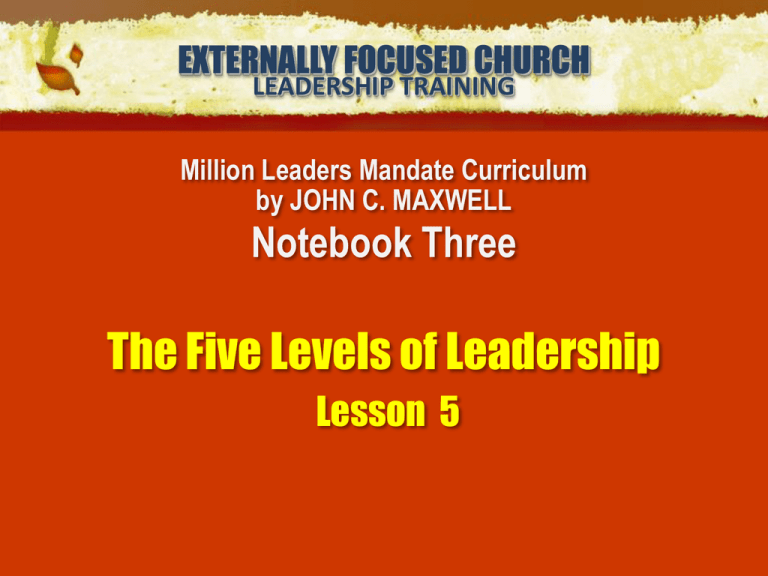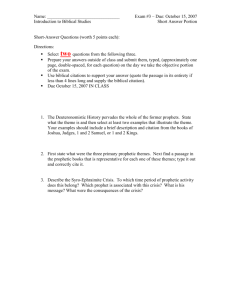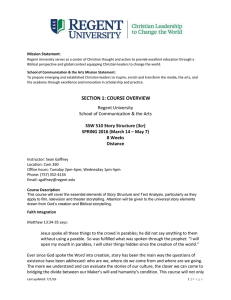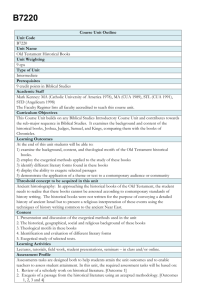Five Levels of Leadership: John Maxwell Training
advertisement

EXTERNALLY FOCUSED CHURCH LEADERSHIP TRAINING Million Leaders Mandate Curriculum by JOHN C. MAXWELL Notebook Three The Five Levels of Leadership Lesson 5 The Five Levels of Leadership I. Position: Rights - People follow you because they have to. II. Permission: Relationships - People follow because they want to. III. Production: Results - People follow because of what you have done for the organization/team. The Five Levels of Leadership IV. People Development: Reproduction - People follow because of what you have done for them. V. Personhood: Respect - People follow because of who you are and what you represent. The Five Levels of Leadership 1. Position People follow you because they have to. Biblical example: Rehoboam The Law of the Lid Leadership Ability Determines a Person’s Level of Effectiveness The Five Levels of Leadership 2. Permission People follow you because they want to. Biblical example: Nehemiah The Law of Connection Leaders Touch a Heart Before They Ask for a Hand Poem by Ella Wheeler Wilcox There are two kinds of people on earth today, Just two kinds of people, no more, I say. Not the good and the bad, for ‘tis well understood That the good are half-bad and the bad are halfgood. No! The two kinds of people on earth I mean Are the people who lift and the people who lean. The Five Levels of Leadership 3. Production People follow you because of what you’ve done for the organization or church. Biblical example: David The Law of Respect People Naturally Follow a Leader Stronger Than Themselves The Five Levels of Leadership 4. People Development People follow you because of what you’ve done for them. Biblical example: Paul The Law of Explosive Growth To Add Growth, Lead Followers - To Multiply, Lead Leaders The Five Levels of Leadership 5. Personhood People will follow you because of who you are, and what you represent. Biblical example: Samuel Samuel’s Qualities: 1. A faithful servant of the Lord 2. An example of a life lived with integrity 3. A consistent producer of leaders over the years Climbing the Steps of Leadership 1. The higher you go, the longer it takes. 2. The higher you go, the higher level of commitment. 3. The higher you go, the easier it is to lead. 4. The higher you go, the greater the growth. 5. You never leave the base-level, or the levels below where you are. 6. As a leader, you won’t be on the same level with all of your people. 7. You must work to carry other leaders with you up the steps. How Do We Climb the Leadership Steps? 1. Consistently ask God to build you into a more effective leader. 2. Develop confidence in your people skills. 3. See every relationship you have as a chance to develop that person. 4. Walk slowly through the crowds. 5. Consistently keep a list of potential leaders you can invest in. How Do We Climb the Leadership Steps? 6. Prioritize discipleship; find systematic ways to train people. 7. Select and mentor key leaders. 8. Live a model life that others would want to imitate. 9. Recognize that people are your most valuable asset.











